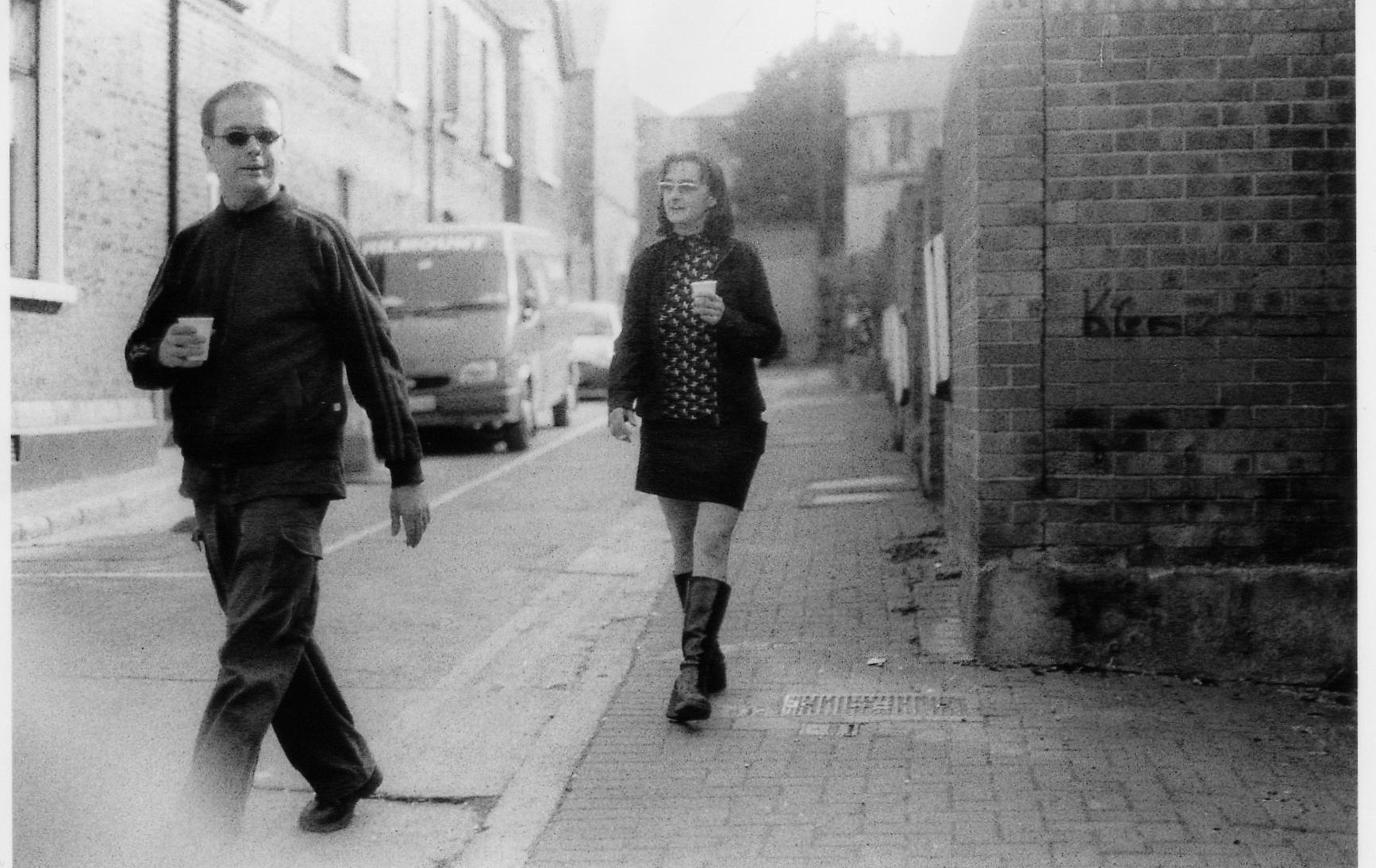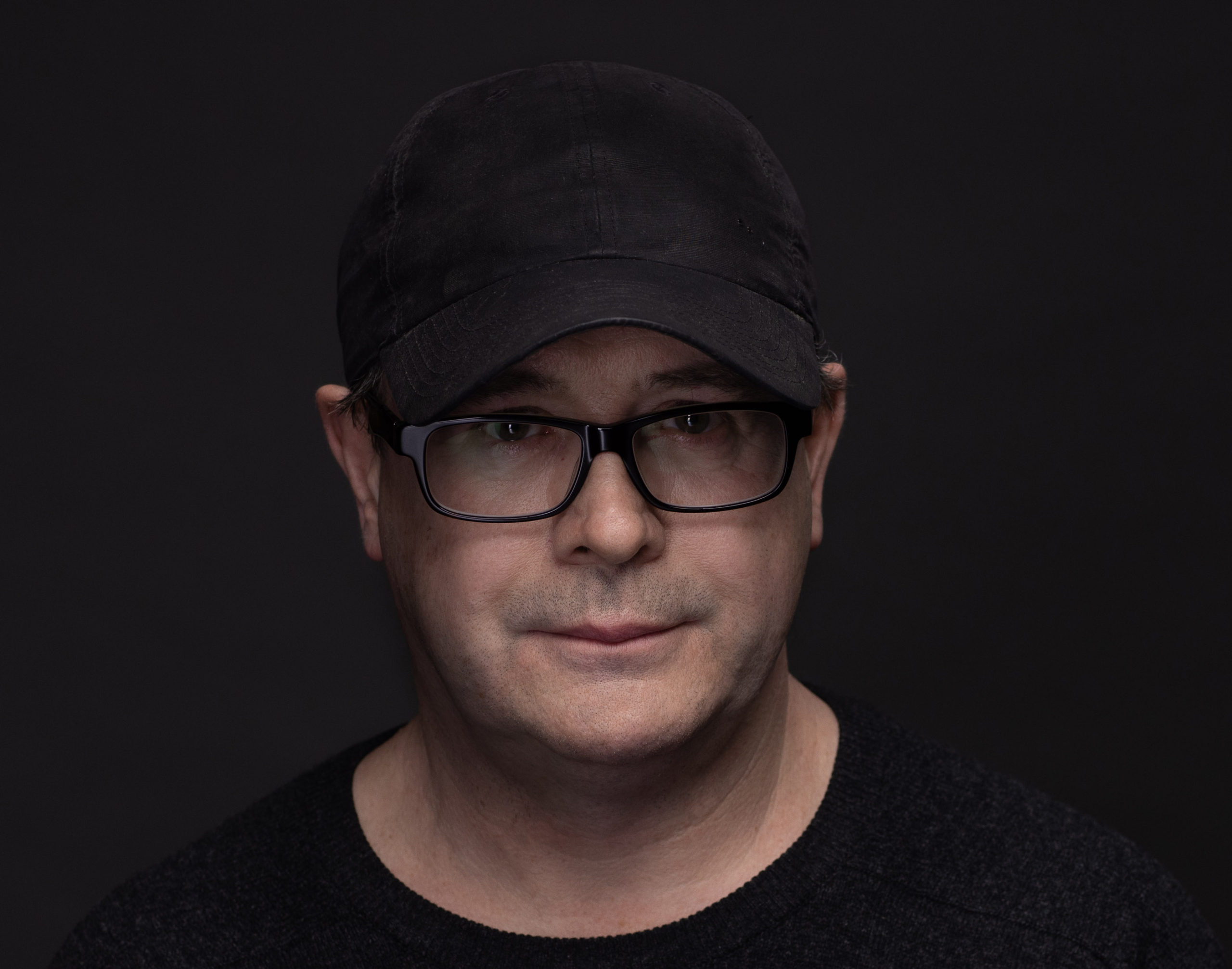It was sometime around 1998, while directing Flick, that Fintan Connolly said that “the best thing about the process of making a film is the process itself”. He added: “You learn so much at each stage that I think it stands to you.”
Twenty-odd years later, it’s clear that not much has changed for the Dublin-born filmmaker. He tells me, on a slightly shaky phone line, that every aspect of making a film has its rewarding aspects. “It’s quite different – one part is quiet and solitary and the other is quite busy and sociable”, he says of the process.
Connolly is a long-established name in Ireland’s film and TV scenes, having produced a hatful of documentaries and films over a career that has spanned more than three decades. Along the way, he’s worked with actors such as Aidan Gillen and David Wilmot, and he has been consistently hailed for his ability to shoot films that depict the realities of Dublin life. As one reviewer put it: “You won’t spot the Chieftains playing trad on Moore Street. This is real Dublin – and what first strikes you about the film is that Flick is a love letter to Connolly’s native city.”
This isn’t far off the mark. Connolly tells me that “a lot of the films are set in Dublin, which is obviously my home, and my love”. There’s a sense that the comfort of living and working in his native city allows Connolly the freedom to operate on his own terms, before bringing the finished product to the world: “It’s fun developing an idea that you think of as you’re walking the dog. And about two years later you have a premiere.”
It’s quite different – one part is quiet and solitary and the other is quite busy and sociable
But filmmaking, he concedes, isn’t an easy task. It’s laborious, and it’s subject to all sorts of setbacks that don’t exist in a job that starts in an office at 9am. “It’s project to project”, he says. “There’s always difficulties raising money and so on, and a lot of projects collapse before they’re supposed to start – and a lot never get made.”
But if this is a troubling thought, then to Connolly it’s all part and parcel of the world he’s made his living in. “Making a film, and directing a film, is the best fun you can have standing up”, he says. “As a filmmaker, the stories I want to tell are the ones I want to tell. For some reason, I want to tell the story.”
Connolly has certainly told plenty of stories in his time, real and fictional – and he’s often pushed the envelope in terms of tackling social issues. In 1994, he found himself, along with co-director Hilary Dully, at the centre of controversy over a documentary, 50,000 Secret Journeys, that included interviews with three women who had travelled to the UK to have abortions. RTÉ pulled the programme, which was supposed to air on its Tuesday File programme, just days before it went out, prompting a loud backlash from many commentators.
I ask Connolly if it was a difficult period, but he prefers to focus on the process of making the documentary, and the move he made into making films in its aftermath. He says it was “great to get the opportunity” to make a programme that shed light on the real-life experiences of women who’d been forced to travel to the UK by an Ireland that had criminalised abortion. “Up until then”, he says, “generally when there was stuff on the news or on current affairs about abortion, women were usually disguised or darkened. Our selling point was that we would get women to talk directly to camera. Because I always felt that by darkening things, or pixelating things, it made it a more sinister”.
“It was great to get the opportunity to make that programme”, he says. “And in fact, what happened with it and everything, it led to other things. So it was exciting. And it was difficult, but it was the making of us in a way.”

Fintan Connolly and Fiona Bergin on set.
If the documentary was a formative project for Connolly, though, it was far from the first step of his journey. That came much earlier, during a childhood spent in Dublin as a “TV addict”.
“And that was in the days when there wasn’t as much TV! TV didn’t start until sometimes four in the afternoons, and ended at 11 at night. But I loved all those kind of cop shows, and American stuff, and Irish stuff as well.”
Connolly studied communications studies at the College of College in Rathmines – now Dublin Institute of Technology. He says it was the perfect place to be for a young filmmaker: “We’d four years with just being left to make shorts and different things like that.”
From there, he and Dully started a production company, and began pitching to RTÉ. They were clearly good at what they were doing – it was the 1980s, and Connolly says independent filmmakers weren’t often used by the station, but the pair were commissioned to make a number of documentaries. They then moved into current affairs, which allowed them “to touch on issues affecting our generation”.
And then, of course, came 50,000 Secret Journeys.
TV didn’t start until sometimes four in the afternoons, and ended at 11 at night. But I loved all those kind of cop shows, and American stuff, and Irish stuff as well
The documentary – which Connolly says happened “in a blur” – seems to have opened the door, in one way or another, to a move into the world of film. And here we come back to Flick, which was written and directed by Connolly and produced by Fiona Bergin. Making Flick, Connolly says, was “a good time”. It was shot on almost no budget, but that didn’t stop it from achieving widespread critical acclaim. In fact, it might have helped. As Connolly said in 1998, during a behind-the-scenes film about Flick’s production, “if we hadn’t decided to go the low-budget route, we’d still be in development hell”.
He tells me making Flick “was a great experience – one of the best. We made that film low budget, just a bunch of people together – a bunch of friends – most of whom I still work with, and we shot over three weeks. It just all went well”.
But Connolly has experience in more orthodox methods of filming too, and he says both offer scope for creativity. Trouble With Sex, a film he made with Bergin in 2005, was an example of this, and he looks back on making it with great fondness.
Connolly has been around the block a long time. He’s seen various trends come and go (he tells me with more than a trace of irony that “I try to keep up”). But it seems he’s kept pace, in his own unhurried way, with the enormous changes that have occurred in the industry in recent years. At the end of it all, though, it seems he’s more of a subscriber to the old way of making films – producing them with time and care, in a way that isn’t mass produced. “Maybe I’m nostalgic”, he says. “But there aren’t as many good films these days as there used to be.”







